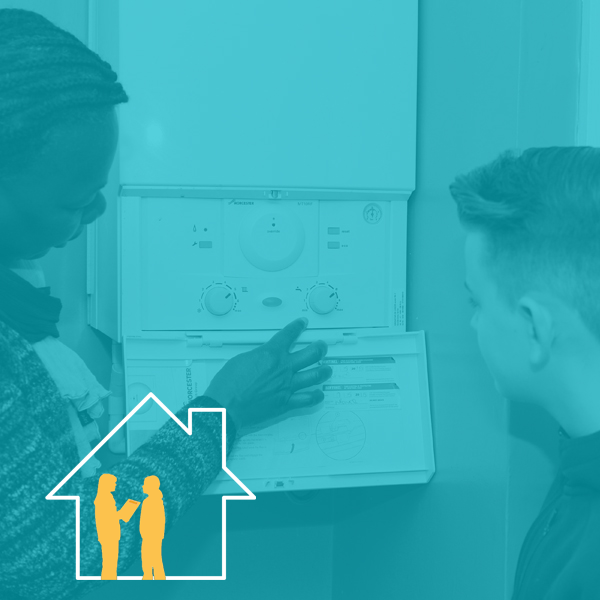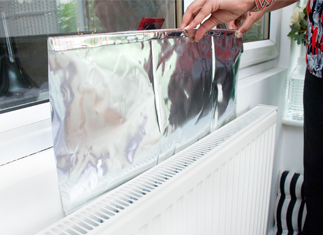< Back

Energy Awareness 6281-01 (Level 3 Award)
Face-to-face course
Aimed at workers who deliver energy advice to households, either face to face or over the phone, this course will cover energy saving methods and other knowledge and skills required to deliver useful advice.
This is our most popular course, running for over 30 years with more than 26,000 learners to date.
Prerequisite
This programme of training is part of our Leicester Energy Action project and specifically aimed at learners based in the LE1 to LE5 postcode areas.
As this is a level 3 qualification learners will require basic literacy and numeracy skills. The course and exam will include some written activities as well as calculating fuel bills; calculating running costs of electrical appliances and converting temperatures using simple formulas which will be provided.
For e-learning / online assessment, learners will need basic computer skills to navigate the e-learning (you can view a short sample of the course via the link further down this page).
Course aim
The course aims to provide delegates with an understanding of energy advice and the knowledge required to deliver energy advice to householders.
Course objectives
Explain:
- the efficiency and appropriate use of heating and hot water appliances and systems and the functions of the controls
- domestic fuel cost data using the domestic heat cost (Sutherland) tables
- how to record gas and electricity consumption and work out costs
- payment options for gas and electricity
- insulation methods for improving the energy efficiency of a range of building types
- Government assistance to help householders improve the energy efficiency of their homes, including the Affordable Warmth Obligation of the Energy Company Obligation
- the causes of condensation dampness, how to avoid condensation and remedial actions to combat existing condensation
Duration
The course will be delivered across three days (usually consecutive) followed by a one-day exam. The exam will usually take place a week after the training to leave a little time for learners to revise.
How will the course be delivered?
This course will be delivered in person by our expert tutors and include a variety of delivery methods including presentations, group discussions, practical activities etc.
Course programme
Course times are generally 10:00am – 4:30pm each day and the standard programme is as follows however please note that this may change slightly from course to course.
DAY 1
Introduction to the course
Fuel poverty and health
Basic principles of energy in the home
Temperature conversions
Heating appliances and systems
Heating and hot water systems
Control for heating and hot water systems
Setting programmers/ timers
Mock simulation exercise
DAY 2
Calculating electricity consumption of appliances and calculating costs
Measuring electricity and gas consumption and calculating costs
Fuel bills
Comparative costs of fuels and heating systems
Fuel payment methods and fuel debt
Mock simulation exercise
Renewable energy
Mock practical
DAY 3
Measuring energy efficiency of dwellings
Heat loss
Insulation
Energy efficiency schemes/ grant aid
Dampness and condensation
How will the exam be delivered?
The exam is also carried out in person by an NEA registered examiner under exam conditions.
Exam programme
Exam times are generally 10:00am – 4:30pm and the standard programme is as follows however please note that timings may change slightly.
Introductions
WRITTEN PAPER 1 (85 minutes)
Section 1 – Home Heating
Section 2 – Bills, Meters and Paying for Fuel
Break
WRITTEN PAPER 2 (75 minutes)
Section 3 – Cutting Down Heat Loss
Section 4 – Condensation and Dampness
Lunch
ROLE PLAY (30 minutes)
You will sit one-to-one with the examiner and explain:
- Why the electricity bill you are shown may be inaccurate
- How to read a dial meter
- How to set a mechanical programmer and explain warming up / cooling down times as well as the function of the various controls
- Set but not have to explain a digital programmable room thermostat
Fees
Places are offered free of charge to non-commercial organisations (such as local authorities, housing associations, advice agencies etc) based in the LE1 to LE5 postcode areas. Learners must also be frontline staff or volunteers that encounter and provide advice to those in or at risk of fuel poverty.
Course dates / locations (open access)
TBC
FOR FURTHER DETAILS PLEASE CONTACT:
Lynsey Thompson, NEA
Telephone: 0191 261 5677


